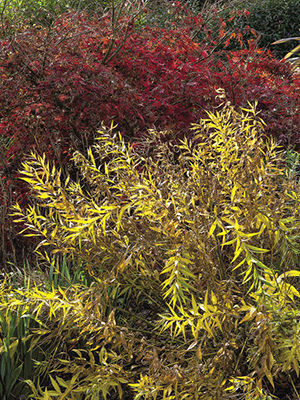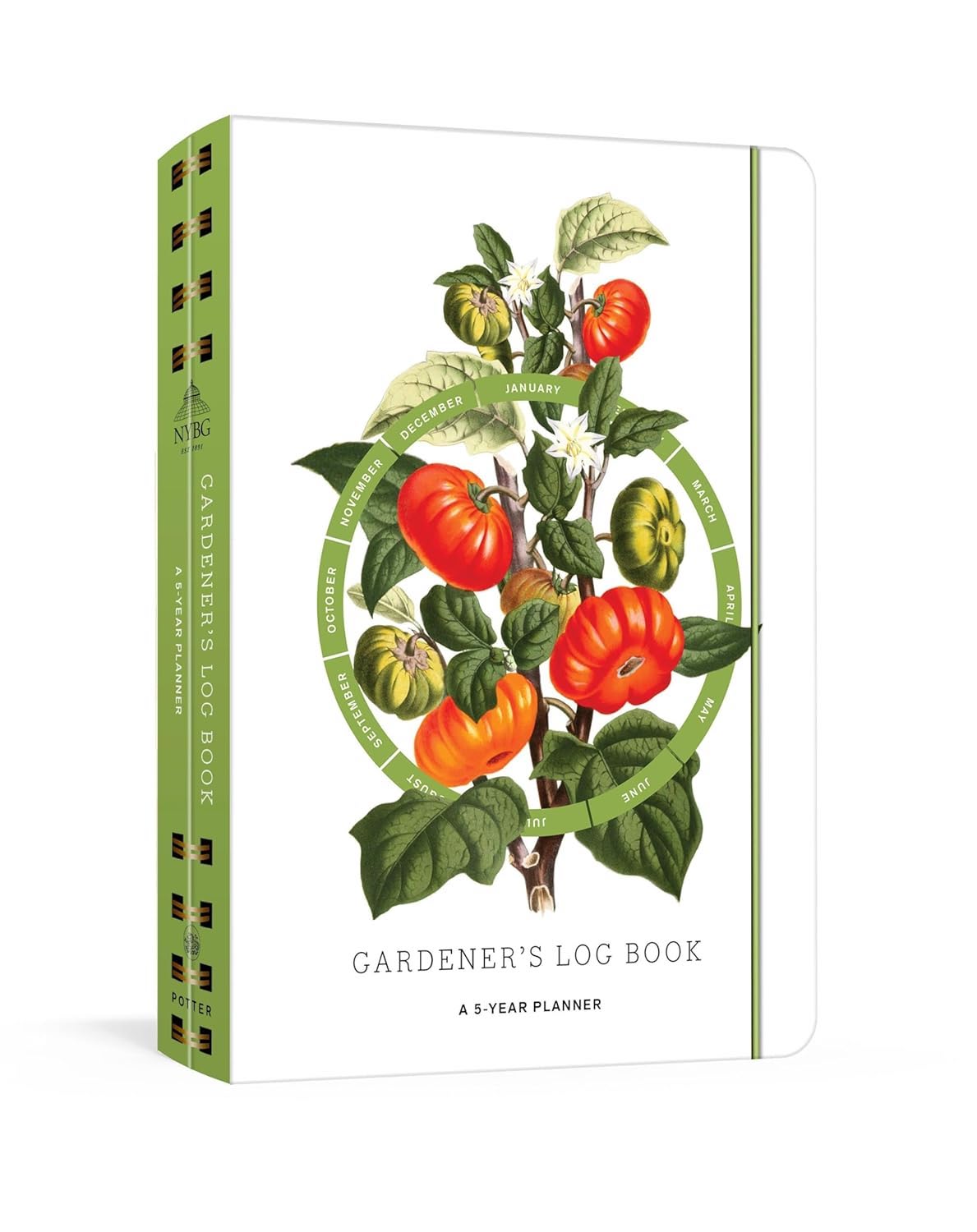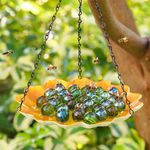1. Willow-Leaved Blue Star

Name: Amsonia tabernaemontana
USDA hardiness zones: 3 to 9
Size: 2 to 3 feet tall and wide
Conditions: Full sun to light shade; moist, well-drained soil
Willow-leaved blue star grows quickly in May and begins flowering in early June. The star-shaped, light blue flowers appear at the top of the stems. After flowering, the fine-textured, medium green foliage begins covering the developing seed heads, and the plant reaches its mature height and width by mid-July. During late September, as the temperatures drop, the foliage turns yellow-green, then bright yellow by early to mid-October. The great mass of yellow fall foliage contrasts nicely with the dark brown cones and stems of ‘Vintage Wine’ purple coneflower (Echinacea purpurea ‘Vintage Wine’, Zones 3–9).
2. Wild Quinine

Name: Parthenium integrifolium
Zones: 4 to 8
Size: 2 to 4 feet tall and 1 to 2 feet wide
Conditions: Full sun to light shade; moderately dry to slightly moist, average soil
Wild quinine is a fine architectural plant with four seasons of interest, a nice strong texture, and a robust vertical growth habit that opens slightly at the top. The dense clusters of white flowers sit atop the plant beginning in June, while the bulk of the rich green foliage is clustered on the lower portion of the plant. In late September, the foliage starts turning yellow-brown, changing to dark brown by late October. This dynamic foliage show makes a strong statement in fall. Cut the plants back in March to about 3 inches tall, and leave the plant debris around the plants as mulch.
3. Tall Coreopsis

Name: Coreopsis tripteris
Zones: 4 to 9
Size: 3 to 7 feet tall and 2 to 4 feet wide
Conditions: Full sun to light shade; modestly moist to average, well-drained soil
Tall coreopsis has a strong vertical growth habit and daisy-shaped, canary yellow flowers clustered atop the plant that move gently back and forth in a breeze. Flowering begins in late July and lasts until mid-September. In early October, the foliage starts to turn a light coppery red, getting a little deeper in color by the end of the month. The large size and autumn color of tall coreopsis highlight any portion of the garden in which it is planted. This coreopsis won’t be noticeable in spring until mid-May, so plant some bulbs around it for some April color.
4. ‘Jazz’ Little Bluestem

Name: Schizachyrium scoparium ‘Jazz’
Zones: 3 to 9
Size: 2 to 3 feet tall and 10 to 15 inches wide
Conditions: Full sun to light, open shade; average to dry, well-drained soil
‘Jazz’ little bluestem is shorter than the species and stays upright in our organic, clay soils better than the popular cultivar ‘The Blues’. In summer, ‘Jazz’ displays silvery blue foliage similar to that of ‘The Blues’; by late September, the foliage changes to a smoky purple with red highlights. In November, the foliage turns an engaging tannish cinnamon color. Cut this plant back in March, scatter the debris around the plant, and plant some bulbs nearby for April entertainment.
Roy Diblik is a co-owner of Northwind Perennial Farm in Burlington, Wisconsin, and the author of The Know Maintenance Perennial Garden.
Photos: #1, Marianne Majerus/Marianne Majerus Garden Images; #2, Nancy J. Ondra; #3, Jennifer Benner; #4, courtesy of Intrinsic Perennial Gardens, Inc.
Fine Gardening Recommended Products

Gardener's Log Book from NYBG
Fine Gardening receives a commission for items purchased through links on this site, including Amazon Associates and other affiliate advertising programs.

The Regenerative Landscaper: Design and Build Landscapes That Repair the Environment
Fine Gardening receives a commission for items purchased through links on this site, including Amazon Associates and other affiliate advertising programs.

Bee Watering Station with Vivid Flower Design
Fine Gardening receives a commission for items purchased through links on this site, including Amazon Associates and other affiliate advertising programs.


















Comments
Log in or create an account to post a comment.
Sign up Log in